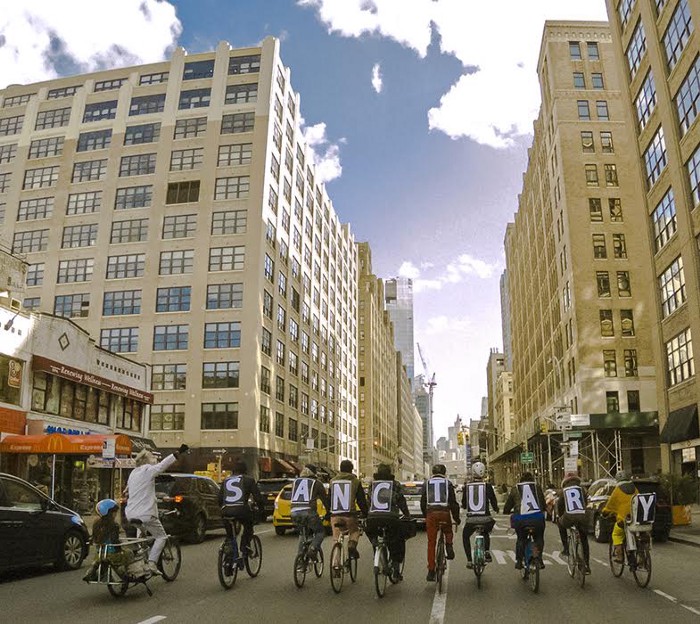
I have always been a fan of fake news. I don’t mean the kind that we see in today’s disinformation campaigns on Facebook and Twitter. It’s the work of 1960’s pranksters such as Paul Krassner, Abbie Hoffman, or Robert Anton Wilson and the Discordians that I always admired. That tradition has been carried on well to this day by fabulous media activists including my friends with the YesMen, Adbusters, Ubermorgen, and the Birds aren’t Real movement (who contend that the CIA has replaced all real birds with spy drones).
Yet while I applaud any and all activity that wakes people up to the illusions perpetrated by capitalism, the war machine, or the many institutions of social control, I wonder how much such pranksterism makes sense in the current environment. Yes, we need to have fun. But given that we live in a world where the President of Russia can claim that tens of thousands of dead bodies in Ukraine are actors murdered by Ukrainians (begging the question of why use actors if you’re going to kill them, anyway? Don’t regular people act just as dead once murdered?), I can’t help but worry that more disorienting media madness — however playful — may just untether us further. How do we pull the rug out from under those who are pulling the rug out from under us, already?
I’m not in the mood for practical jokes, right now. The momentary cognitive instability that pranks create may be extremely useful for breaking people out of entrenched sensibilities, like consumerism or capitalism. But what about when we’re all floating in a sea of uncertainty and confusion? Everything’s a trigger, because almost anything might be true.
On the other end of the spectrum come the many “sensemakers” offering to help us navigate a path through the counterfactual maze by embracing stoicism, enhancing our meta-mindfulness, ingesting the right nutrients, installing a brain-training app, or purchasing the latest nine-and-half-weeks of sadomasochistic webinar experiences. There’s always a framework through which to embrace complexity, a stack with which to reprogram civilization, and a (usually white male) genius onto whom we can transfer parental authority and trust that we are being led in a sensible direction. Their pitches feel intentionally destabilizing, as if to convince us of just how confused we are.
I’d rather cast my lot with the clowns than these self-righteous intellectuals.
But the clowns have a new job on their hands: how to catalyze awe and humility without just triggering more fear and confusion? So far, I think activist preacher, showman, and chorus leader Reverend Billy is closest to balancing the urgency of the moment with the light-heartedness of performance and play. Whether staging a “die in” to protest the use of RoundUp out of NYC public parks, or playing with a giant inflatable earth ball in the new Freedom Tower subway station, the Church of Stop Shopping Choir always brings a spirit of openness, inclusivity, and joy to their work. Reverend Billy, himself, seems to have transformed from a satire of a Christian evangelist into a real preacher for the soul of the earth. He pushed through irony and despair and emerged a happy clown who orients and educates. Instead of feeding the chaos, his ministry helps us gain our bearings: through song, humor, community, and (are we allowed to use this word?) love.
There’s still a place for the trickster in our lives, I’m sure. But I’m feeling like satire may be the wrong form for a society that is too suspicious of reality already to be appropriately disarmed by a prank. There’s a way to keep doing this work in the current environment, for sure, as long as we remember to be careful how we shake the foundations when people aren’t even standing on the ground.